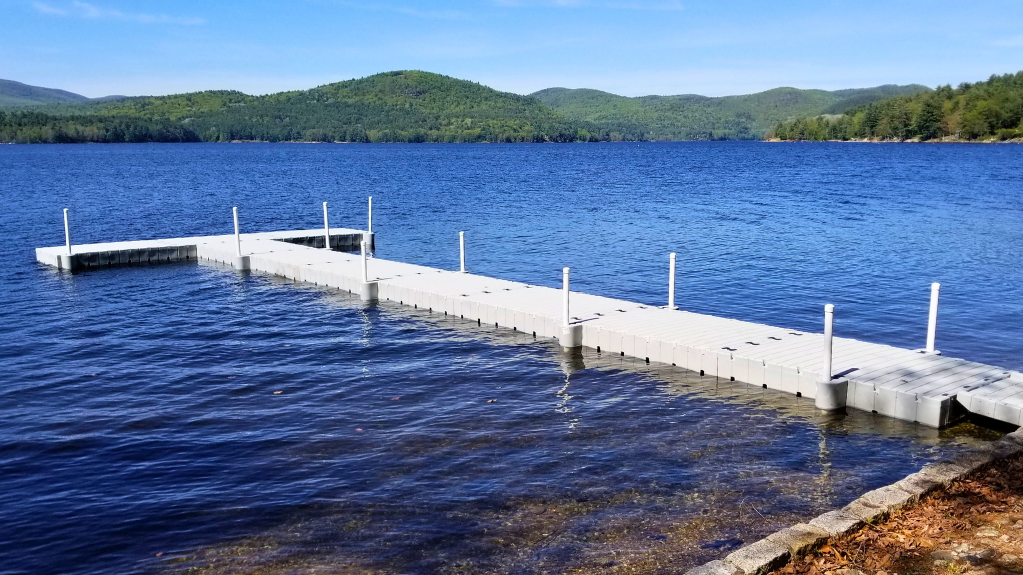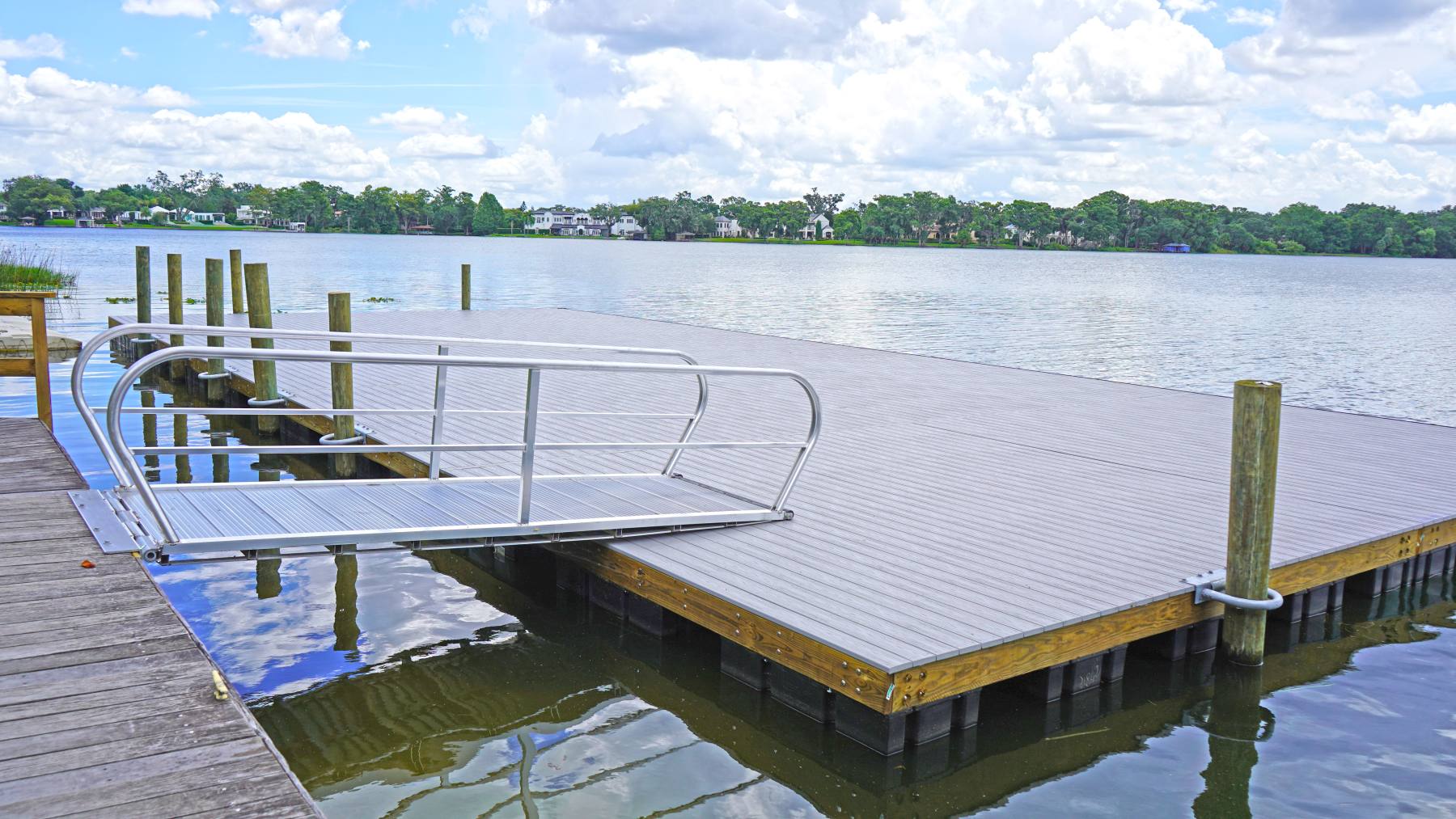Floating Docks: The Ideal Option for Versatile Water Accessibility
Floating docks present a compelling option for a selection of water access needs, offering adaptability that goes beyond traditional mooring options. Their capability to adjust to rising and falling water degrees while ensuring stability and safety makes them especially helpful for both industrial and entertainment applications. The modular nature of floating docks helps with personalization, catering to certain requirements. However, the nuances of installation and upkeep, along with the variety of applications, warrant a closer assessment to completely appreciate their potential benefits and implications for river access techniques.
Benefits of Floating Docks
Floating docks offer countless advantages that enhance water access for different applications. Their capacity to increase and fall with changing water degrees makes them especially beneficial in environments with rising and fall tides or seasonal variants. This versatility ensures that vessels can conveniently moor without problem for the water's depth, giving a reliable platform for leisure, industrial, and industrial usages.
Furthermore, floating docks are typically created from long lasting products that resist rust, making them ideal for long-term use in marine atmospheres. Their installment is generally much less intrusive than traditional fixed docks, decreasing the environmental influence and facilitating quicker implementation (dock company). This flexibility permits much easier relocation or reconfiguration according to user requirements or ecological modifications
Security is an additional vital advantage; floating docks can offer steady gain access to for individuals disembarking or boarding from boats and decrease the risk of crashes related to unpredictable surface areas. They can be developed to accommodate a variety of devices, such as fenders and cleats, improving functionality. Overall, floating docks represent an effective solution for boosting water gain access to across varied sectors while advertising security and environmental sustainability.

Sorts Of Floating Docks
Numerous kinds of floating docks provide to various needs and atmospheres, each developed with specific attributes to optimize capability. One of the most common types include modular docks, which consist of interlacing sections that permit for easy customization and expansion. These docks are excellent for recreational usage, as they can be customized to fit various boat dimensions and water problems.
Another popular alternative is the fixed floating dock, which remains anchored in location yet drifts with changing water levels. floating dock company. This kind is specifically matched for areas with minimal tidal changes, supplying steady accessibility for angling or swimming. Additionally, there are drive-on docks, which feature a sloped design that allows boats to conveniently drive on and off, making them suitable for individual boat and smaller sized vessels
For commercial applications, heavy-duty floating docks are available, built from strengthened materials to stand up to considerable tons and extreme aquatic atmospheres. Last but not least, eco-friendly floating docks utilize sustainable products and layouts to lessen ecological impact, typically integrating functions like greenery to support local wild animals. Recognizing the numerous sorts of floating docks makes sure that individuals can select one of the most ideal option for their details needs.
Installment Process Review
An effective installment of floating docks calls for careful planning and attention to information to make certain optimal performance and safety. The preliminary step entails analyzing the site problems, including water deepness, present, and potential obstacles. This evaluation informs the option of the suitable dock products and design customized to the certain environment.
Following, obtaining needed permits is critical, as lots of jurisdictions have policies concerning building and construction on water bodies. The setup can continue when permissions are protected. Begin by preparing the structure, which might involve anchoring systems or pilings customized to the dock kind and local conditions.
Adhering to the foundation configuration, construct the dock sections according to producer requirements. Make certain that all components are safely attached and aligned to endure ecological stress and anxieties. site Position the dock in the designated area, ensuring it is degree and secure.

Upkeep Tips and Ideal Practices
After the installment process is total, continuous maintenance plays an important duty in making sure the longevity and performance of floating docks. Normal assessments ought to be conducted to recognize any kind of indicators of damages, wear, or wear and tear - dock company. Look for any type of loosened installations, fractures, or splitting up in the dock sections, as these can compromise structural stability
Cleansing the dock is important to get rid of particles, algae, and various other build-up that can influence its appearance and safety. Use a mild stress laundry periodically to keep cleanliness without creating damage to the surface. Additionally, applying a protective sealant every couple of years you can try here can aid improve long life and withstand environmental wear.
Pay focus to the mooring lines and anchors, ensuring they are free and safe and secure from deterioration. Replace any kind of degraded components quickly to stay clear of hazards. Seasonal changes might likewise be required; during severe climate condition, rearranging or reinforcing the dock can prevent damages.
Applications for Floating Docks
Floating docks offer a plethora of applications, accommodating both industrial and recreational needs. In entertainment settings, they supply smooth access to waterways for tasks such as boating, angling, and swimming. Their flexible nature enables setup in differing water degrees, ensuring secure and risk-free access despite tidal fluctuations.
Readily, floating docks are indispensable for marinas and waterside companies. They assist in the docking of vessels, enabling effective unloading and loading of products. Their modular style permits simple growth or reconfiguration to suit changing service needs, making them optimal for watercraft services, scenic tour operations, or fishing charters.
Furthermore, floating docks are made use of in environmental applications such as aquatic research study and environment repair. They can offer as systems for clinical research studies, checking water quality, or conducting wild animals studies without disturbing sensitive communities.
In industrial contexts, floating docks are employed in building and construction jobs, offering access to hard-to-reach areas for devices and personnel. Their flexibility, durability, and marginal influence on the atmosphere make them an ideal selection for a variety of applications, improving both performance and availability in various water-based environments.
Final Thought
In verdict, floating docks stand for an optimum remedy for diverse water gain access to needs, owing to their adaptability, durability, and modular layout. These frameworks facilitate safe mooring for numerous applications while reducing environmental impact during installment. The lowered maintenance needs better see this site improve their practicality. Floating docks offer as a valuable asset for entertainment, industrial, and ecological projects, making sure trusted accessibility to rivers and promoting lasting methods in marine atmospheres.
Floating docks present a compelling solution for a selection of water gain access to requires, supplying versatility that goes beyond conventional mooring options.Floating docks deal many benefits that boost water access for numerous applications. In general, floating docks stand for an efficient option for enhancing water accessibility throughout varied sectors while promoting safety and security and ecological sustainability.
An additional popular option is the stationary floating dock, which stays anchored in place however drifts with transforming water degrees.In conclusion, floating docks stand for an optimal remedy for varied water access needs, owing to their adaptability, longevity, and modular layout.